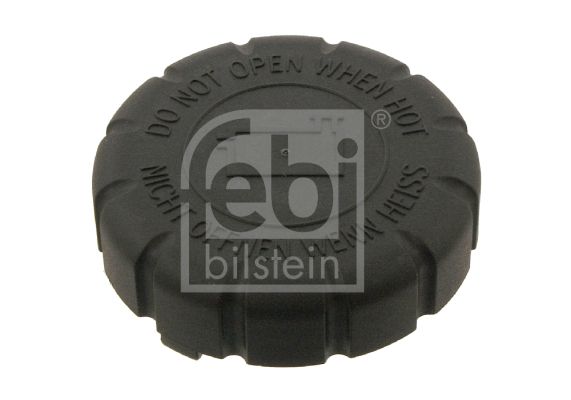Why Your Car Cooling System Needs a Pressure Cap

Ensuring optimal performance and longevity of your car's engine starts with understanding the importance of the pressure cap in your cooling system.
The Role of the Pressure Cap in Your Car's Cooling System
The pressure cap is a crucial component of your car's cooling system. It helps maintain the right amount of pressure within the system, ensuring that the coolant circulates properly through the engine and radiator. This pressure is essential for preventing the coolant from boiling, even when the engine reaches high temperatures.
Additionally, the pressure cap acts as a safety valve. If the pressure within the cooling system becomes too high, usually due to overheating, the cap releases some of the coolant into an overflow tank, protecting the engine from damage.
How a Pressure Cap Maintains Optimal Engine Temperature
A pressure cap maintains optimal engine temperature by increasing the boiling point of the coolant. Under normal atmospheric pressure, water boils at 212°F (100°C). However, when the cooling system is pressurized, the boiling point of the coolant mixture is raised, allowing it to absorb more heat from the engine without boiling.
This higher boiling point means that the coolant can effectively remove heat from the engine, keeping it within the optimal operating temperature range. This process prevents overheating, which can lead to severe engine damage.
Signs Your Pressure Cap Needs Replacement
There are several signs that indicate your pressure cap may need replacement. If you notice coolant leaking around the cap or from the overflow tank, it might be a sign that the cap's seal is failing.
Other symptoms include frequent overheating, a collapsed radiator hose, or coolant that is consistently low even after topping it off. If you're experiencing any of these issues, it's a good idea to inspect the pressure cap for wear and tear.
Benefits of Using a High-Quality Pressure Cap
Investing in a high-quality pressure cap can provide several benefits. Firstly, it ensures a proper seal, preventing coolant leaks and maintaining the correct pressure within the cooling system. This leads to better cooling efficiency and engine performance.
High-quality pressure caps are also more durable and less likely to fail under high temperatures and pressures, reducing the risk of engine overheating. Additionally, they often come with improved safety features, such as pressure release valves that operate more reliably.
Tips for Maintaining Your Car's Cooling System
Regular maintenance of your car's cooling system is essential for preventing issues and extending the life of your engine. Start by checking the coolant level regularly and topping it off as needed. Also, inspect the pressure cap and other components, such as hoses and the radiator, for signs of wear and tear.
It's also a good idea to flush the cooling system periodically to remove any deposits or contaminants that can clog the system and reduce its efficiency. Lastly, always use the recommended type of coolant for your vehicle and replace it according to the manufacturer's guidelines.

 Loading..
Loading..